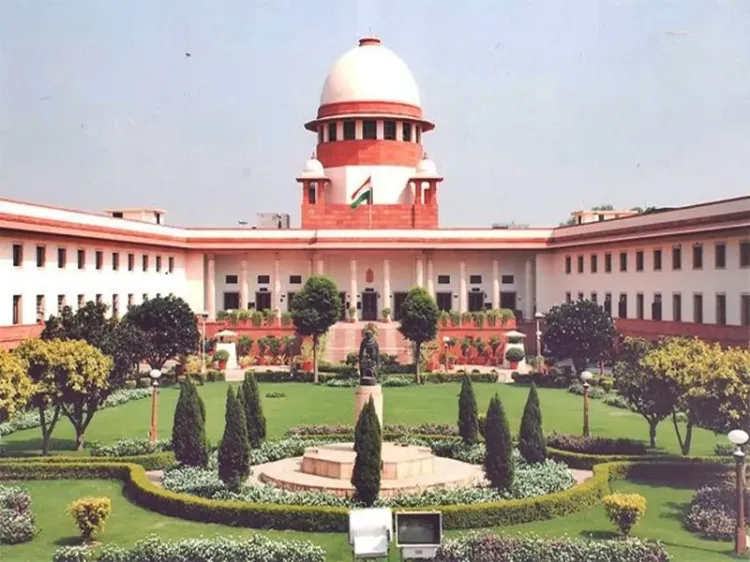Supreme Court Rules Tamil Nadu Governor's Bill Reservations as Illegal

Synopsis
Key Takeaways
- The Supreme Court invalidated the Tamil Nadu Governor's reservation of 10 bills for Presidential review.
- The court affirmed that the Governor must act on the advice of the Chief Minister.
- Delays in granting assent were criticized as unjustifiable.
- Legal obligations under Article 200 were highlighted.
- The Governor's actions were deemed politically motivated.
New Delhi, April 8 (NationPress) The Supreme Court on Tuesday declared it “illegal and erroneous” for Tamil Nadu Governor R.N. Ravi to reserve 10 bills, re-adopted by the State Legislative Assembly, for the President's review.
A bench comprising Justices J.B. Pardiwala and R. Mahadevan ruled that the Governor lacked the authority to reserve a bill that the state government had re-presented after it was passed again by the Assembly.
The court stated that reserving these 10 bills for Presidential assent was illegal and, as such, should be annulled.
In its findings, the Supreme Court asserted that the Governor acted without good faith and that the Bills were considered to have received the Governor's assent on the date they were re-submitted.
In a thorough opinion, the Justice Pardiwala-led Bench indicated that the Governor may reserve a re-adopted Bill for Presidential consideration only if the version presented during the second round differs from the initial submission. Furthermore, the apex court clarified that the Governor cannot simply withhold assent, emphasizing that under Article 200 of the Constitution, the Governor must act on the advice of the Chief Minister and his council of ministers.
Earlier this year in February, the apex court had reserved its ruling in this case after hearing arguments from Attorney General (AG) R. Venkataramani, the highest-ranking law officer of the Centre, along with senior advocates Abhishek Manu Singhvi and Mukul Rohtagi, representing the Tamil Nadu government.
The Tamil Nadu government had initiated a writ petition in the Supreme Court, asserting that the Governor had positioned himself as a “political rival” to the duly elected state government. Following a notice issued by the Supreme Court concerning the Tamil Nadu government's plea, the Governor had returned 10 of the 12 Bills awaiting his assent.
After the Tamil Nadu Assembly re-adopted these 10 bills in a special session, which had previously been sent back by the Governor for reconsideration, he referred several of them to the President.
During the hearing, the Justice Pardiwala-led Bench questioned AG Venkataramani about whether the Tamil Nadu Governor could simply delay action on the Bills passed by the Assembly if he believed they were unconstitutional, without informing the legislature of his views.
“If the Governor suspects that a bill is unconstitutional, shouldn’t he notify the state government? How can the government gauge the Governor's intentions? If the Governor had concerns, he should have immediately alerted the government so the Assembly could reconsider the bills,” the apex court remarked.
In November of the previous year, the Supreme Court expressed concern regarding the delay by Tamil Nadu Governor R.N. Ravi in granting assent to the Bills passed by the state legislature. After learning that the Governor returned 10 out of 12 Bills awaiting his assent, the SC questioned: “These Bills have been pending since January 2020. What was the Governor doing for three years? Why did he wait for the parties to approach the Supreme Court?”
According to Article 200 of the Constitution, if a Bill is re-passed, whether amended or not, and is presented to the Governor for assent, he is obligated to grant his approval.









